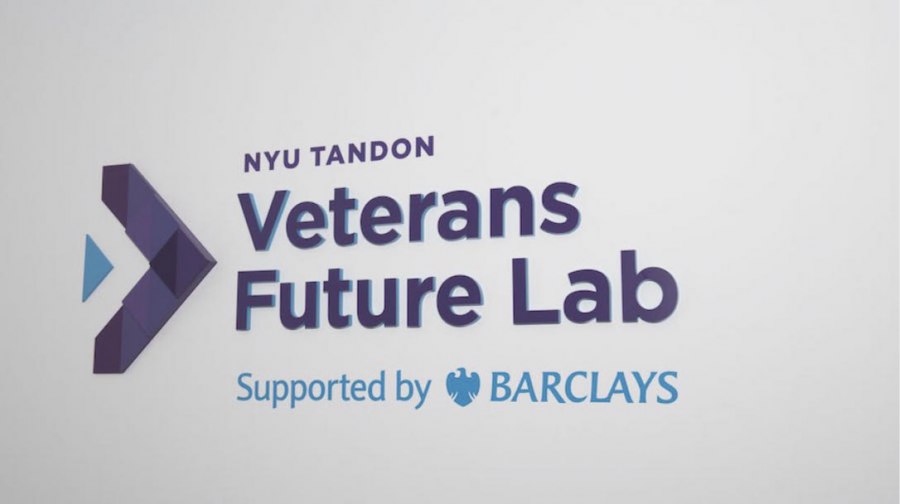NYU Tandon School of Engineering’s Future Labs has been helping veteran entrepreneurs grow their businesses for the last four years. Now, the program is offering veterans free housing in an effort to make the program accessible to as many applicants as possible.
The housing will be available for those involved in the year-long Apex incubator program, which offers mentoring, free office space and networking opportunities to new startups run by veterans, their spouses or other military personnel.
Director of Veterans Future Lab James Hendon said that although a couple of the program members in the current cohort commute from Detroit and Philadelphia, the members are primarily from the greater New York City area. The free housing aims to diversify the pool of applicants and provide resources to a greater number of passionate entrepreneurs.
“If they want to eat, we’re going to feed them,” Hendon said.
When he was chosen as director, Hendon realized that while New York is a great place to grow a startup, affordable housing is limited. In an effort to take the program to a national level, Hendon decided to work out an arrangement with the Fort Hamilton Army Base in Brooklyn.
Free housing, rent and utilities will be available to 12 of the program members.
Tandon started supporting vet entrepreneurs when it launched the Veteran Entrepreneurship Training program, or VET program, in 2015 after New York state assemblyman and veteran Joseph Lentol approached Tandon about establishing a veteran-specific entrepreneurship program said Dr. Kurt Becker, Vice Dean for Research, Innovation and Entrepreneurship at Tandon.
“They are very dedicated, very committed to their idea and want to make it work because this is their chance to reintegrate into the economy,” Becker said. “They know they have a chance and that they’re actually getting something that is valuable.”
Hendon, who graduated from the VET program in 2016, said that the Apex program developed after teams from the VET program looked to Future Labs for more support in further growing their fledgling businesses.
“What are you gonna do with us now?” Hendon said the veterans from the first VET program asked after its completion. “Are you gonna put us on the street?”
The current Apex cohort consists of 22 startups and is aiming to add 20 more this upcoming summer.
Marine Corps veteran and CEO of Social Solar Donna Sanders said that having access to labs, leaders, faculty and office space at Tandon makes a significant difference in growing a business. Social Solar is the third startup she has worked on.
“It’s kind of like that Forrest Gump thing,” she said. “It’s like a box of chocolates — NYU — you just never know what you’re going to get — and it’s pretty exciting.”
Sanders, who received her MBA from Columbia University, said that NYU’s program is unique in that it provides veterans’ startups similar resources to more developed startups at different incubator programs. The lab provides these resources for younger startups because it understands veterans put their lives on hold to serve before starting businesses.
“I would really recommend that any veteran that wants to start a business should really strongly consider this lab,” Sanders said.
Becker said that Tandon is looking into expanding housing but for now will be treating the free housing as a pilot program. The Veterans Future Lab aims to provide the maximum number of veterans access to vital resources so they can effectively reintegrate into the economy.
“For us, it’s really about the gap that we need to close between this one person who exists right now who made these sacrifices,” Hendon said. “And where this person would have been had they not made these sacrifices.”
Email Bethany Allard at [email protected].






















































































































































